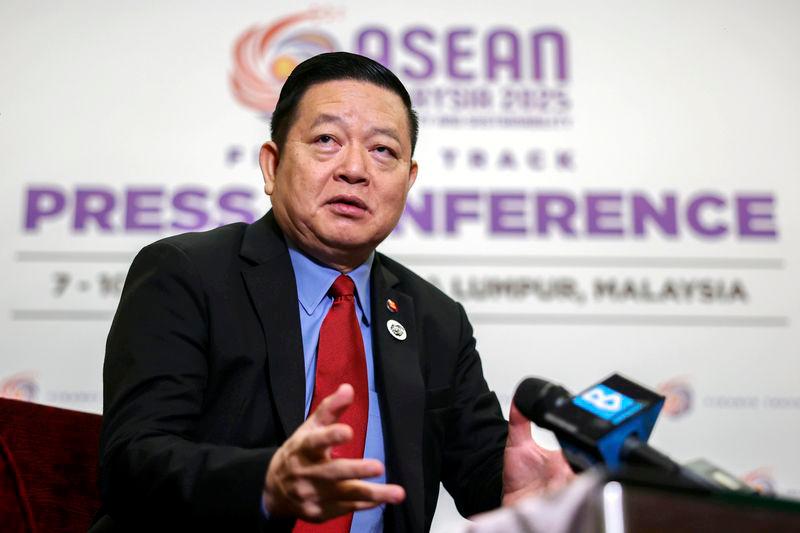JAKARTA: Stressing the importance of ASEAN-Japan cooperation in clean energy transition, ASEAN Secretary-General Dr Kao Kim Hourn said joint efforts must extend beyond renewable energy and efficiency to encompass key decarbonisation technologies such as carbon capture, ammonia and hydrogen.
In his remarks during a meeting with Japan’s Special Envoy and former Prime Minister Fumio Kishida at the ASEAN Headquarters here on Monday, Kao acknowledged the challenges faced by Southeast Asian nations and Japan in balancing net-zero emission goals with energy security and rising energy demand.
He said during the meeting, which brought together top Japanese officials including Japan’s Ambassador to ASEAN Kiya Masahiko and Asia Zero Emission Community (AZEC) Special Adviser Yamada Takio, that a multifaceted energy transition strategy in the region is essential in balancing the net-zero emissions goals.
“Our cooperation on clean energy transition is vital, encompassing not only renewable energy and improved efficiency but also critical decarbonisation technologies such as CCUS (Carbon Capture, Utilisation, and Storage), ammonia and hydrogen,” he said.
Kao said Japan’s leadership in clean technology and its role in launching the AZEC initiative were recognised as key to advancing regional decarbonisation efforts.
He said nearly all ASEAN member states are now active participants in AZEC.
ASEAN and Japan reaffirmed their commitment to the joint goals outlined in the 2023 Commemorative Summit in Tokyo, which include deeper cooperation on climate change, environmental sustainability and energy transition, he said.
Kao also highlighted Japan’s longstanding partnership with ASEAN, noting contributions to the Japan-ASEAN Integration Fund, the ASEAN-Japan Technical Cooperation Agreement, and the Economic Research Institute for ASEAN and East Asia (ERIA).
“Japan continues to be one of ASEAN’s most trusted and valued partners,” he said, citing strong ties in economic cooperation, investment and human capital development.









